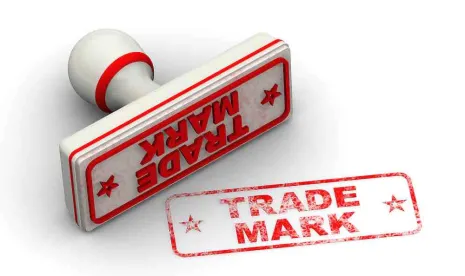On June 8, 2023, the Supreme Court of the United States issued its decision in Jack Daniel’s Properties, Inc. v. VIP Products, LLC, a trademark case concerning the First Amendment parody defense. In a unanimous opinion authored by Justice Kagan, the court sided with Jack Daniel’s Properties, ruling that the First Amendment did not protect the “Bad Spaniels” dog chew toy that mimicked the iconic Jack Daniel’s liquor bottle (see side-by-side comparison below). The court’s decision did not rule on whether VIP Products violated Jack Daniel’s Properties’ trademark rights; its ruling instead clarified that VIP Products’ use of the Bad Spaniels name and product design constituted “trademark” use that falls outside of First Amendment protection. The Supreme Court sent the case back to district court to determine whether VIP Products’ Bad Spaniels trademark and trade dress is likely to cause confusion with Jack Daniel’s Properties’ trademarks and trade dress.
The Bad Spaniels chew toy utilizes the shape and other distinctive features of a bottle of Jack Daniel’s whiskey. For example, the words “Old No. 7 Brand Tennessee Sour Mash Whiskey” on the Jack Daniel’s bottle were replaced on the chew toy with “the Old No. 2, on your Tennessee Carpet.” Further, where the Jack Daniel’s bottle says its product is 40% alcohol by volume, the Bad Spaniels chew toy says, “43% poo.” Both the label and the bottle shape and design, are protected trademarks and trade dress of Jack Daniel’s Properties.
VIP Products argued that its chew toy was a “parody” of the Jack Daniel’s bottle and such parody granted it a viable defense to trademark infringement under the First Amendment. The district court disagreed, finding VIP Products infringed Jack Daniel’s Properties’ trademarks under the standard likelihood of confusion analysis and the fair use defense did not apply to the dilution by tarnishment claim because VIP Properties’ Bad Spaniels trademark and trade dress served as designations of source. The Ninth Circuit reversed the lower court, instead finding that VIP Products did not infringe or dilute Jack Daniel’s Properties’ trademarks because of First Amendment protections, i.e., the Rogers1 test. The Supreme Court did not comment on the specific circumstances to which First Amendment protections apply, but rather, more narrowly held that when a trademark is used for source identification, the likelihood of confusion test is the proper analysis, even if the use of a mark has other expressive content because it conveys some message on top of source. In other words, the court ruled that when an accused infringer has used a trademark to designate the source of its own goods, this use “falls within the heartland of trademark law” and will not receive First Amendment protection. However, if a mark does contain some expressive message unrelated to source, that will be factored into the likelihood of confusion analysis.
In addition to likelihood of confusion, Jack Daniels’ Properties also alleged that VIP Products diluted through tarnishment its iconic name and trade dress. VIP Properties argued that its use fell within the Trademark Act’s fair use exclusion because it parodied, criticized, or commented upon a famous mark. See Section 1125(c)(3)(A). The court quickly disposed of VIP Products’ fair use defense to Jack Daniel’s Properties’ tarnishment claim, holding that the Trademark Act’s fair use exclusion does not apply when the junior user’s use is “a designation of source for the person’s own goods or services.” “Given the fair-use provisions carve out, parody, (and criticism and commentary, humorous or otherwise) is exempt from liability if not used to designate source.” Jack Daniel’s Properties, Inc. v. VIP Products, LLC, 599 U.S. 1, 20 (2023). Because VIP Products’ Bad Spaniels trademark and trade dress are source identifications, the fair use safe harbor does not apply.
Two justices also issued concurring opinions. Justice Sotomayor, joined by Justice Alito, commented on the use of surveys in assessing consumer confusion when it comes to parodies, expressing caution that giving too much weight to surveys will silence great parodies by giving powerful brands even more power. Justice Gorsuch, joined by Justice Thomas and Justice Barrett, commented that lower courts should handle the particulars of the Rogers test with care, as much of it remains undecided.
During the case, various companies, such as Nike Inc., Campbell Soup Co., American Apparel, Patagonia, and Levi Strauss, filed amicus briefs in support of Jack Daniel’s, arguing the appeals court’s ruling threatened trademark protections that shield the value of iconic brands. As the court’s decision was a victory for Jack Daniel’s Properties, it is also likely to be seen as a victory for brand owners conducting business in the United States.
1 The Rogers test comes from Rogers v. Grimaldi, 875 F.2d 994 (2d Cir. 1989), and is a test used to protect First Amendment rights where a trademark is used not to designate a work’s source, but solely to perform some other expressive function. The test has been interpreted to have two prongs: (1) determining whether a defendant’s use is artistically relevant to the underlying work; and (2) if so, whether the use is explicitly misleading as to source or content of the work. The test aims to balance freedom of expression (protected under the First Amendment) with freedom from consumer confusion (protected under the Trademark Act).







 />i
/>i

